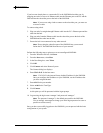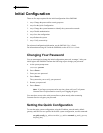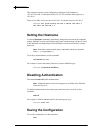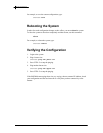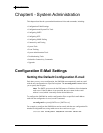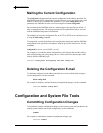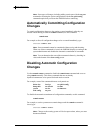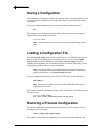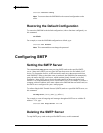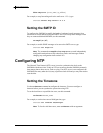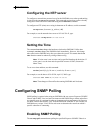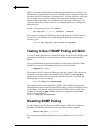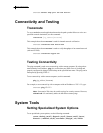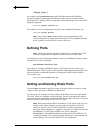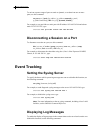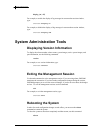
System Administration
TUT Systems, Inc Page 29 of 104 P/N 220-06288-20
sms2000% restore config
Note:
You must reboot the SMS2000 for the restored configuration to take
effect.
Restoring the Default Configuration
To restore the SMS2000 to the default configuration (with no functions configured), use
this command:
set default
For example, to reset the SMS2000 configuration to default, type:
sms2000% set default
Note: This command does not change the password.
Configuring SMTP
Setting the SMTP Server
The command set smtp-server starts proxying SMTP sends to the specified SMTP
server. Many mail (SMTP) servers reject mail sent from users who are behind a NAT
device. To compensate for this, an ISP can install a mail server that accepts mail from
each SMS2000. When a subscriber wants to send mail, the SMS2000 can automatically
proxy the mail to the ISP’s mail server, which can then cleanly forward it to its final
destination. Many SMTP servers do not forward e-mail from hosts outside the local
network. It is recommended that you use a local SMTP server. For example, if you have a
computer with an IP address in the same subnet as the SMS2000 that can send e-mail, use
the SMTP server configured for your e-mail program.
To redirect Simple Mail Transfer Protocol (SMTP) sends to a specified SMTP server, use
this command:
set smtp-server {server_name | ip_address}
For example, to route all outgoing mail messages through an SMTP server with the IP
address 1.2.3.4, type:
sms2000% set smtp-server 1.2.3.4
Deleting the SMTP Server
To stop SMTP proxy sends to the specified SMTP server, use this command:



